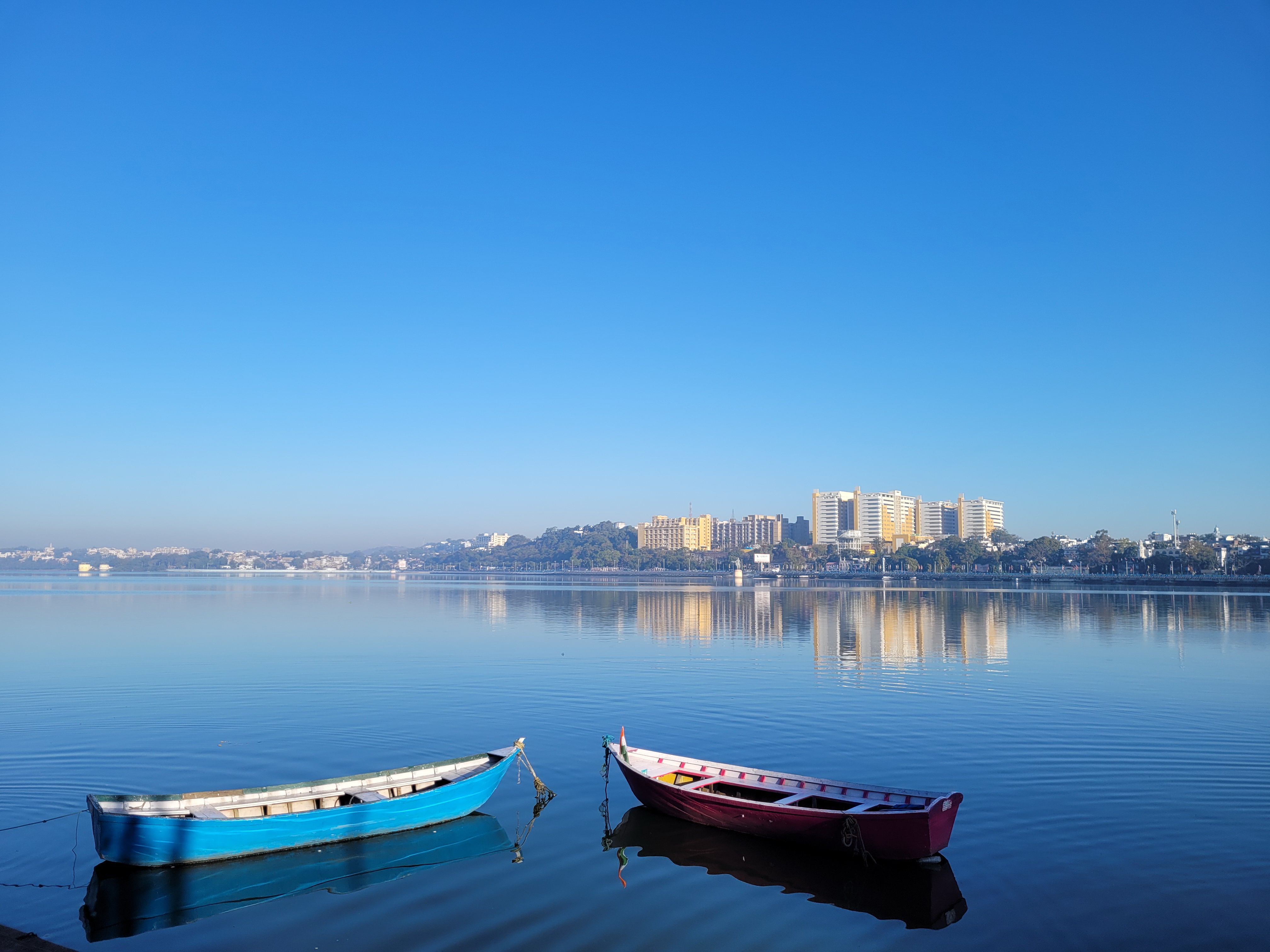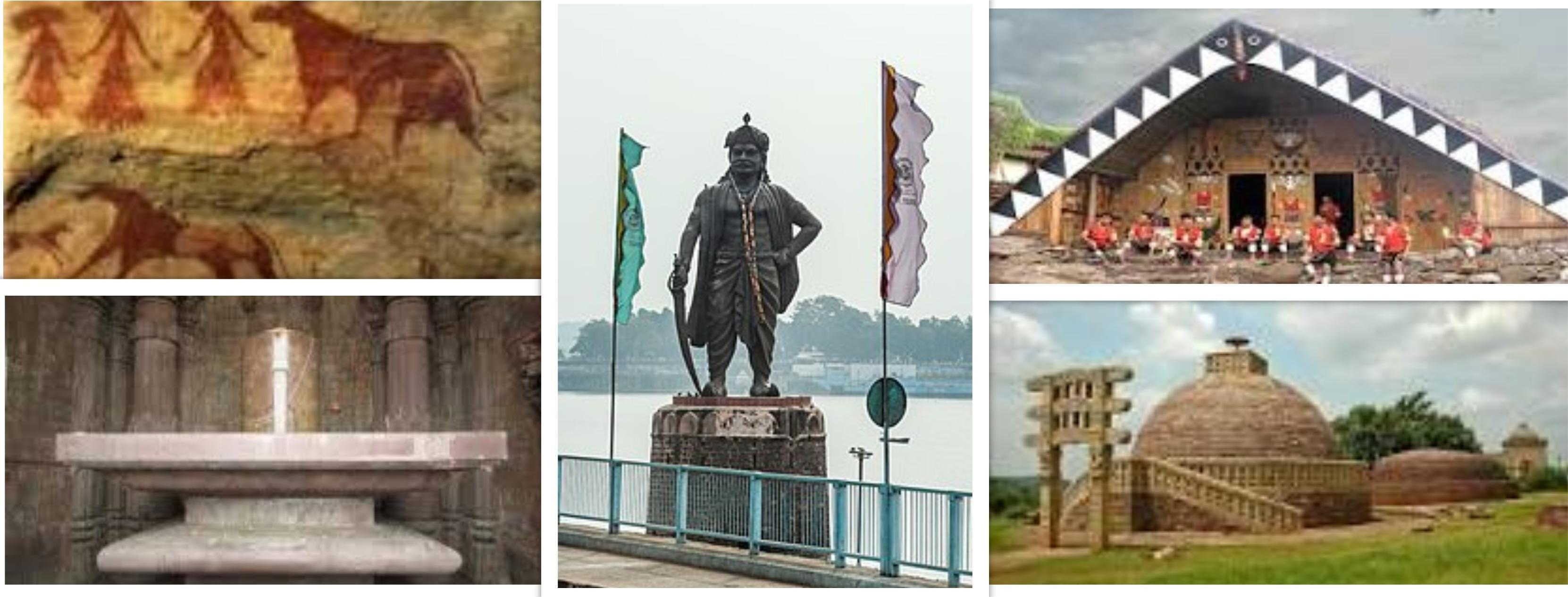


History : According to folklore, Bhopal was founded in the 11th century by the Paramara king Bhoja, who ruled from his capital at Dhar.This theory states that Bhopal was originally known as Bhojpal after a dam (pal) constructed by the king's minister. An alternative theory says that the city is named after another king called Bhupala (or Bhupal).According to yet another version, Raja Bhoj suffered from leprosy.His physician advised him to build a lake with water from 365 rivers and take daily bath in
it. When such a lake was built, it was called Bhoj Tal [or Bhoj's lake]. Gradually people started calling the city Bhojpal, and. In the early 17th century, Bhopal was a small village in the Gond kingdom.
Then Bhopal was ruled by Begums and Britishers. After Freedom of India, Madhya Pradesh formed with capital as Bhopal.
Bhopal is the capital city of the Indian state of Madhya Pradesh and the administrative headquarters of both Bhopal district and Bhopal division. It is known as the City of Lakes, due to presence of various natural and artificial lakes near the city boundary. It is also one of the greenest cities in India. It is the 16th largest city in India and 131st in the world. After the formation of Madhya Pradesh, Bhopal was part of the Sehore district. It was bifurcated in 1972 and a new district, Bhopal, was formed. Flourishing around 1707, the city was the capital of the former Bhopal State, a princely state of the British ruled by the Nawabs of Bhopal until India's independence in 1947.
Bhopal has a strong economic base with numerous large and medium industries operating in and around the city. Bhopal is considered as one of the important financial and economic destinations in Madhya Pradesh's two strong wealth pillars, the other being Indore. Bhopal's GDP(nominal) was estimated at INR 44,175 crores (2020–21) by the Directorate of Economics and Statistics, Madhya Pradesh. A Y-class city, Bhopal houses various educational and research institutions and installations of national importance, including ISRO's Master Control Facility, BHEL and AMPRI. Bhopal is home to a large number of institutes of National Importance in India, namely, IISER, MANIT, SPA, AIIMS, NLIU, IIFM, NIFT, NIDMP and IIIT (currently functioning from a temporary campus inside MANIT). Bhopal city also has Regional Science Centre, one of the constituent units of the National Council of Science Museums (NCSM).
